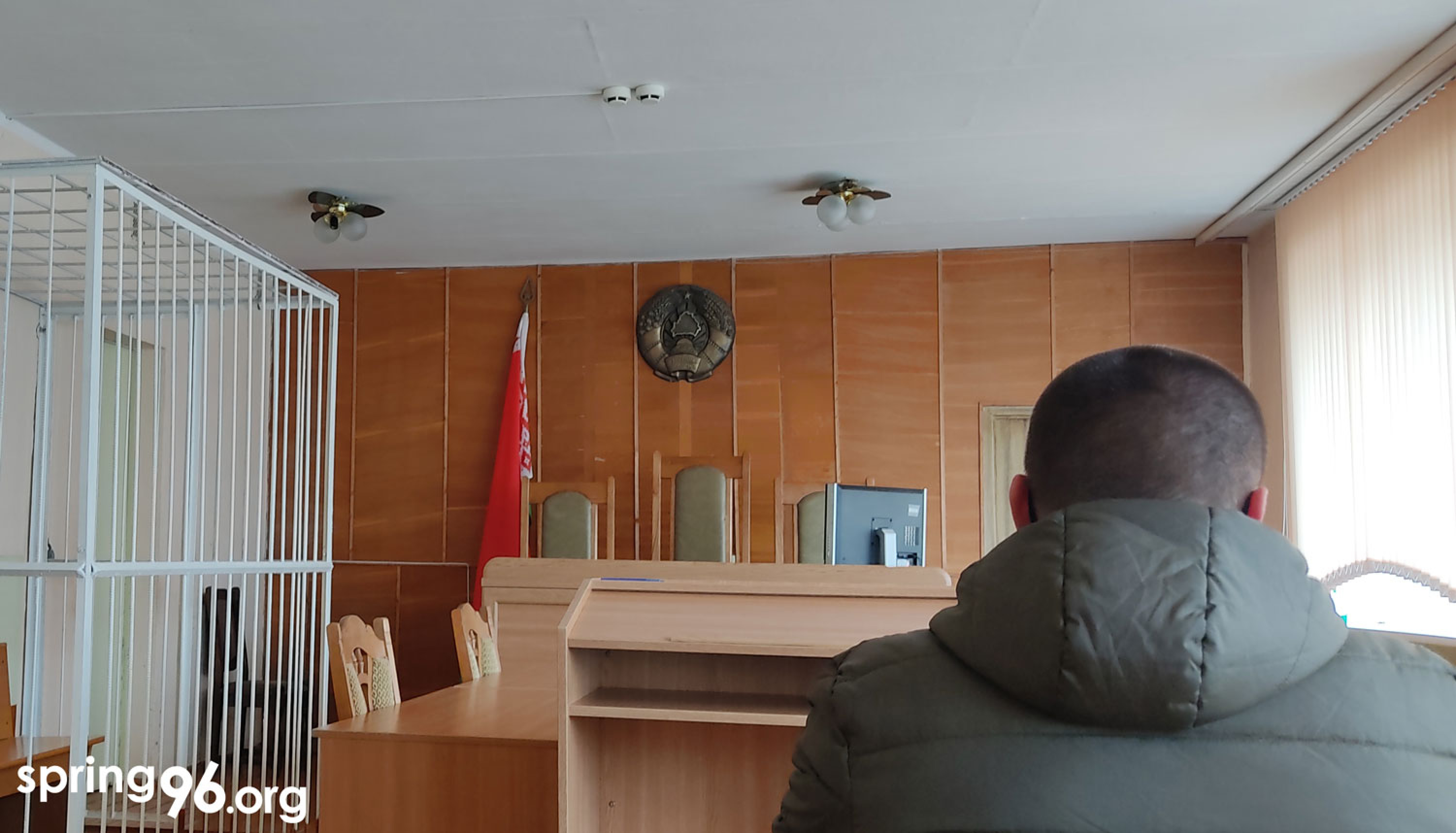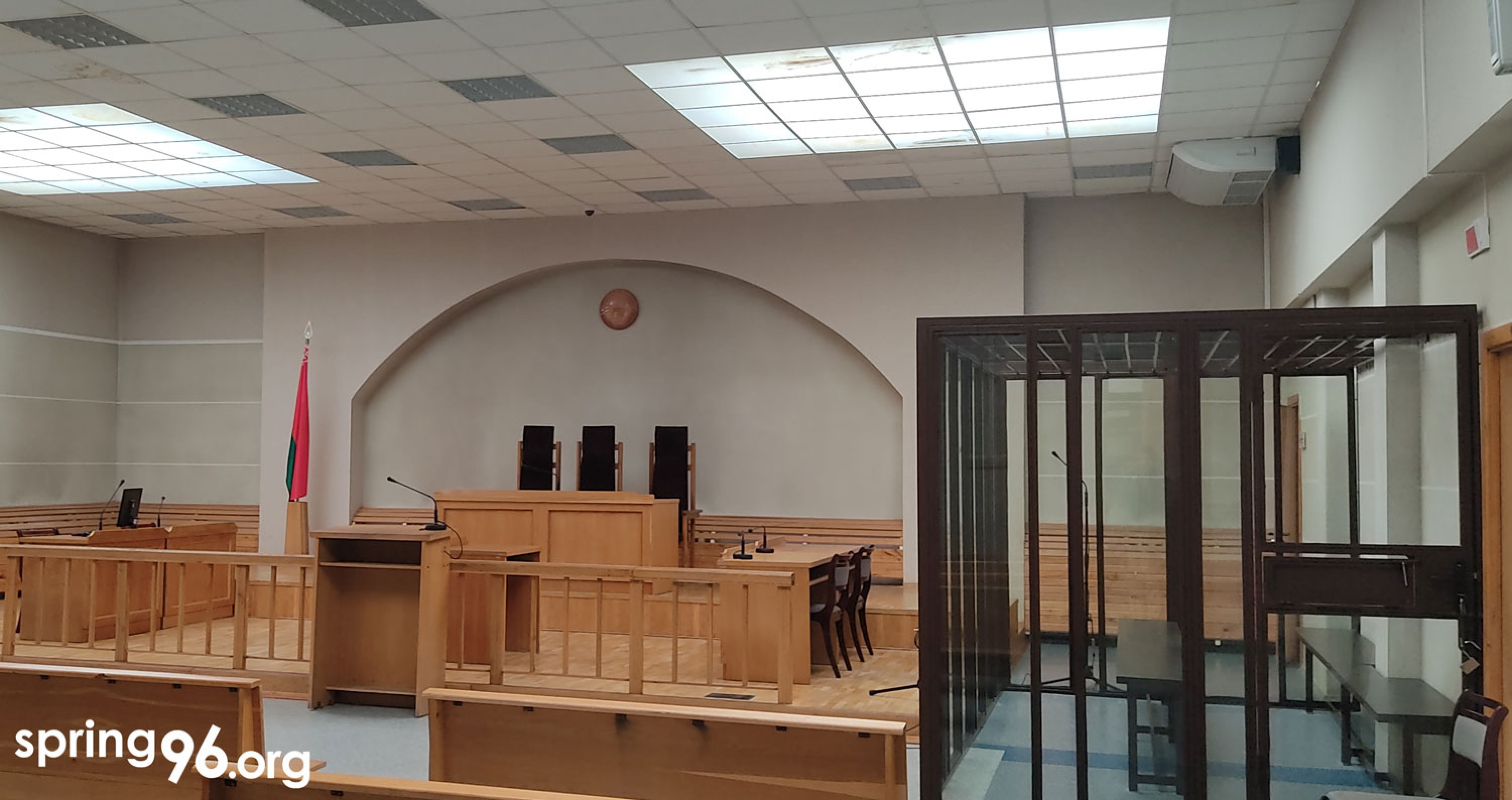At least 143 people convicted in the protest-related criminal trials in November
The Human Rights Center “Viasna” continues to monitor politically motivated criminal trials related to the exercise by citizens of their fundamental rights, such as freedom of expression and peaceful assembly.

In October, at least 95 people were convicted in protest-related criminal trials
In November, the number of political prisoners increased by 57 people. Human Rights Center “Viasna” is aware of at least 143 citizens who were convicted in the frames of the protest-related criminal trials in November. Of those, 83.92% are men and 16.08% are women.
Analysis of the protest-related criminal cases run by the courts in November demonstrates that in the majority of cases the Belarusian authorities use criminal prosecution and the judicial system to repress citizens for exercising their rights to freedom of expression and peaceful assembly.
The judicial monitoring once again revealed a broad geography of politically motivated prosecutions, with similar trials taking place in dozens of cities across Belarus. In November, however, Misnk and the Brest region became leaders in the number of persons convicted under the protest-related criminal cases, having accounted for 58,04% of those.
In November, the number of persons convicted of “mass riots” (Art. 293 of the Criminal Code) and “gross violations of public order” (Article 342 of the Criminal Code) constituted 47.73% of the total number of politically prosecuted individuals. In the Brest region, the number was even higher—76,09%.
The Belarusian authorities continue to actively use the defamatory articles of the Criminal Code (Articles 188, 367, 368, 369, 370, 391) to prosecute citizens for criticizing government officials. Such cases amount to 41,7% of the total number of politically motivated cases monitored by HRC “Viasna” around the country in November. In the Mahilioŭ region, for instance, defamatory cases made up 88,24% of all politically motivated cases.
The judiciary keeps actively using the recent amendments to the Criminal Code which have increased the severity of punishment for exercising basic human rights for repressive purposes. All persons involved in the cases of “insulting government officials” and “desecration of state symbols” have been sentenced to imprisonment.
Court hearings of the most resonant politically motivated criminal cases have been held behind closed doors in order not to disclose any details to the public. Closed hearings of cases of insulting government officials in social networks and violating public order have been happening more and more often.
During court hearings, persons detained in the frames of different criminal cases have been claiming that they had been subjected to cruel inhuman treatment during their arrest, but these facts remain without the necessary assessment by the investigating authorities, as well as without the proper reaction of the state prosecution and the court.
Using their official resources when informing the public about the progress of the most resonant criminal cases, the investigation authorities tend to give a premature assessment of the defendants’ actions before the consideration of their cases in court, thus violating the legal standard of the presumption of innocence.
A tendency have emerged that individuals accused under the cases related to “insulting government officials” and “gross violations of public order” avoid explaining their actions with a desire to exercise their basic rights to freedom of expression and peaceful assembly. This can be explained by the authorities’ intention to scale up the atmosphere of fear and to suppress any ideological dissension in the society.
Types and length of sentences
The monitoring of trials proves that the country’s judicial system tends to select the most severe types of punishment resulting in restricted freedom and imprisonment.
In November, the courts applied imprisonment in 37.76% and restricted freedom (confinement in open penitentiaries, or “khimiya”) in 25.87% of cases. Home arrest (the so-called “domestic khimiya”) was ordered in 32.87% of cases. Arrest (short terms of imprisonment) was used as a punishment in 1.4% of cases, compulsory medical treatment—in 1.4% of cases. Fines constituted only 0.7% of all sentences.
Thus, various types of custodial sentences were handed down in 99.3% of the politically motivated cases.
November sentences in numbers
- 54 people were sentenced to 156 years and 5 days of imprisonment;
- 37 people were sentenced to 91 years of restricted freedom (“khimiya”);
- 47 people were sentenced to 101 year and 6 months of home arrest (“domestic khimiya”);
- 2 people were sentenced to 6 months of arrest;
- 1 person received a fine of 2,900 BYN (approximately 1,000 EUR);
- 4 persons received a fine of 8,120 BYN (approximately 2,800 EUR) as an additional punishment;
- 2 people were sentenced to compulsory medical treatment.


















